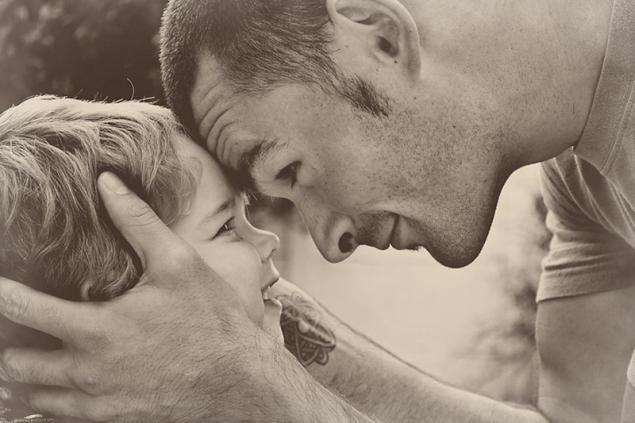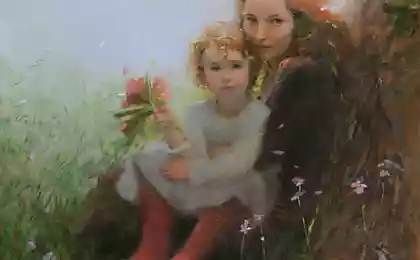463
Tact and courtesy: beyond "please" and "thank you"
A few weeks ago I was checking into the hotel, but found out that my room is not ready yet.
Near last night there was a concert of pop music, which went mainly mothers with daughters. Apparently, after the concert mom went to the bar, while their teenagers began to RAID their hotel rooms, loud music, and frantically rush through the corridors to three hours a night.
The next morning the maids were eliminated the consequences of trash tsunami: lipstick on the mirror, bed, transformed into tepees, and mud everywhere.

While I was sitting in the lobby bar, contemplating this barbaric behavior, I asked myself: how could this happen?
Parents want children to be polite, kind and educated. But what has this to contribute?
Mammals, especially humans, learn socially. We gain knowledge from our environment and from other people, especially from those we love. Unfortunately, watching others, we learn habits as socially acceptable and unacceptable.
If you want something to teach a child or want him to behave a certain way, you need to do a few things. First of all it is necessary to simulate the situation, then to show him or her how it's done, offering a lot of options for fixing the skill, and finally teach him to be responsible.
First, the modeling. In the early years of life we learn, perceiving sensory impressions from the outside world. A set of neural connections allows us to remember what we see.
The child is watching what other people do, and trying to do it again. Studies show that mimicry increases prosocial behavior already in very young children. If you want the children waiting their turn to join in the conversation, behave in the same way. If you want your child sitting at the table during dinner, turn off your cell phone and themselves to stay in place.
Second, the practice. Think about what you want to teach the child everything from when and how to say "sorry" like talking to grandma on the phone, having to hold the door for someone with hands full with bags, to how to behave in a restaurant, theatre, plane and hotel. It is called adapting to the culture. Do it gradually, you will have many years to nurture these habits. Start with simple everyday things: "In our family, when we sneeze, cover sleeve. See how I do it. Now it's your turn".
Other examples:

Once you have mastered modelling and practice, encourage your child to be responsible. If you will be using a motivating tone, this will help the child to understand how to correct mistakes.
Finally, remember that your children really want to learn this. So they feel capable and prepared for society.
Author: Donohue Shortridge
Also interesting: Stop trying to remake the teen under him, making them convenient for your life
STOP words in communicating with children — quickly, efficiently and smoothly
P. S. And remember, only by changing their consumption — together we change the world! ©
Source: mchildren.ru/takt-i-uchtivost-po-tu-storonu-pozhalujsta-i-spasibo/
Near last night there was a concert of pop music, which went mainly mothers with daughters. Apparently, after the concert mom went to the bar, while their teenagers began to RAID their hotel rooms, loud music, and frantically rush through the corridors to three hours a night.
The next morning the maids were eliminated the consequences of trash tsunami: lipstick on the mirror, bed, transformed into tepees, and mud everywhere.

While I was sitting in the lobby bar, contemplating this barbaric behavior, I asked myself: how could this happen?
Parents want children to be polite, kind and educated. But what has this to contribute?
Mammals, especially humans, learn socially. We gain knowledge from our environment and from other people, especially from those we love. Unfortunately, watching others, we learn habits as socially acceptable and unacceptable.
If you want something to teach a child or want him to behave a certain way, you need to do a few things. First of all it is necessary to simulate the situation, then to show him or her how it's done, offering a lot of options for fixing the skill, and finally teach him to be responsible.
First, the modeling. In the early years of life we learn, perceiving sensory impressions from the outside world. A set of neural connections allows us to remember what we see.
The child is watching what other people do, and trying to do it again. Studies show that mimicry increases prosocial behavior already in very young children. If you want the children waiting their turn to join in the conversation, behave in the same way. If you want your child sitting at the table during dinner, turn off your cell phone and themselves to stay in place.
Second, the practice. Think about what you want to teach the child everything from when and how to say "sorry" like talking to grandma on the phone, having to hold the door for someone with hands full with bags, to how to behave in a restaurant, theatre, plane and hotel. It is called adapting to the culture. Do it gradually, you will have many years to nurture these habits. Start with simple everyday things: "In our family, when we sneeze, cover sleeve. See how I do it. Now it's your turn".
Other examples:
- for a small child – to put my chair back in place when he rises from the table;
- for student – lessons for how we treat those who are different from us;
- for a teenager – the rules for how to behave behind the wheel.

Once you have mastered modelling and practice, encourage your child to be responsible. If you will be using a motivating tone, this will help the child to understand how to correct mistakes.
Finally, remember that your children really want to learn this. So they feel capable and prepared for society.
Author: Donohue Shortridge
Also interesting: Stop trying to remake the teen under him, making them convenient for your life
STOP words in communicating with children — quickly, efficiently and smoothly
P. S. And remember, only by changing their consumption — together we change the world! ©
Source: mchildren.ru/takt-i-uchtivost-po-tu-storonu-pozhalujsta-i-spasibo/
10 iron indication that it's time to change your life
Do not leave without attention! The causes of morning headaches























